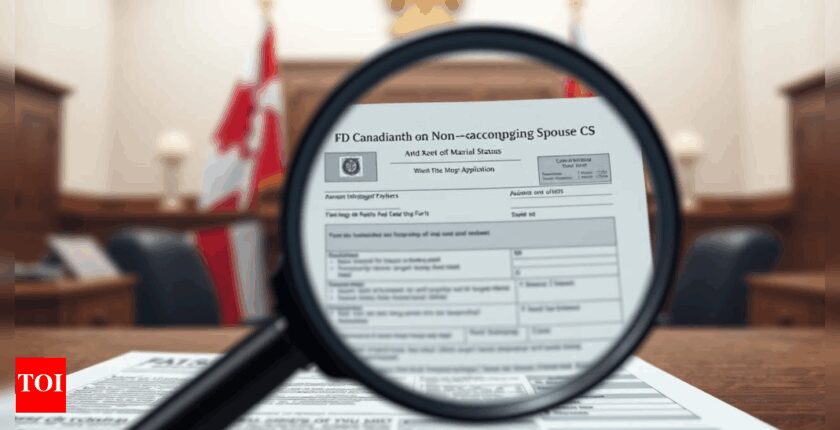Canada Visa Refusals Rise for Non-Accompanying Spouses
Understanding Recent Changes in Canada’s Express Entry Applications
As an international job seeker considering your future in Canada, it’s crucial to understand the evolving landscape of immigration policies, especially regarding the Express Entry system.
Recently, Canada’s immigration agency has increased its scrutiny of applications for permanent residency when applicants declare their spouses as ‘non-accompanying’. This often happens when individuals want to improve their Comprehensive Ranking System (CRS) score, a point-based system used to rank candidates wishing to immigrate.
What is Express Entry and CRS?
Express Entry is Canada’s primary method for managing applications from skilled workers aiming to become permanent residents. Candidates receive a Comprehensive Ranking Score (CRS) based on criteria such as age, education, work experience, and language skills. High-scoring candidates are invited to apply for permanent residency (PR) during periodic draws.
When someone applies without including their spouse, they are viewed as a single applicant, which can provide an advantage in scoring. For many, this seems like a smart strategy, especially if their spouse’s credentials might lower the overall score.
The Shift in Immigration Scrutiny
However, it appears that declaring a spouse ‘non-accompanying’ is being heavily scrutinized, particularly when that spouse is already living in Canada. Applicants often think that this tactic will enhance their chances, but immigration consultants are reporting an increase in refusals and procedural fairness letters being issued for such situations.
Kubeir Kamal, a regulated Canadian immigration consultant, explains, “This practice has become quite common, especially among couples where one partner is already on a temporary work permit and the other on an open spousal work permit.”
The concern with this approach is that if a spouse is physically present in Canada, it may suggest an intention to live together permanently. By declaring them non-accompanying under these circumstances, applicants risk being viewed as misrepresenting their situation.
Potential Consequences of Misrepresentation
Immigration, Refugees and Citizenship Canada (IRCC) warns applicants that misrepresenting information can have serious consequences. If someone attempts to falsely declare their spouse as non-accompanying, they could face a five-year ban from reapplying for immigration, alongside an immediate refusal of their application.
If your spouse is outside Canada, it may be acceptable to declare them as non-accompanying, provided there are valid reasons such as custody issues or job obligations. In such cases, strong documentation and a clear explanation are essential.
Alternative Paths to Improve Your CRS Score
While the criteria may seem rigid, there are legitimate avenues to enhance your CRS score. For example, improving your language test scores or gaining proficiency in French can significantly boost your ranking. You might also consider the Provincial Nominee Program (PNP), an initiative where provinces can nominate candidates for immigration based on local job market needs, which could also enhance your CRS score.
As an international job seeker, it’s vital to stay informed about these developments and strategize effectively if you’re contemplating applying through Express Entry. Our website here at VisaJobsCanada.com focuses specifically on Canadian jobs that offer visa sponsorship to international applicants, which can be a formidable advantage as you plan your move.
Conclusion
With the landscape of Canadian immigration changing, ensure you’re presenting your situation accurately to avoid complications. Always seek advice from trusted immigration consultants or legal experts when in doubt. Engaging with communities about these processes can provide invaluable insights into navigating your path to Canada.
What do you think?
Have a question about this topic or your own plans to move to Canada? Scroll down and leave a comment. We’d love to hear from you.

